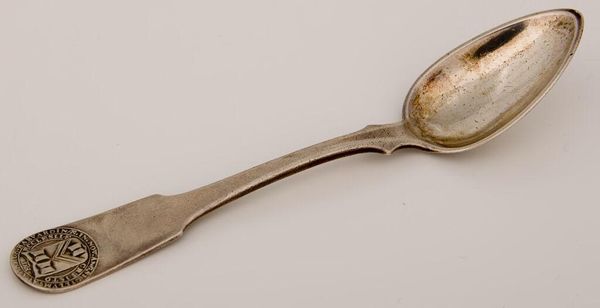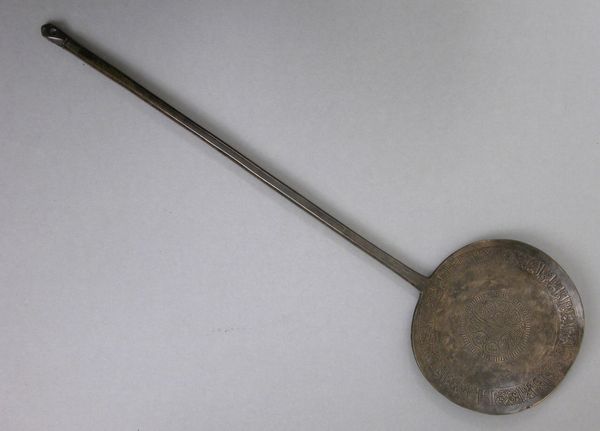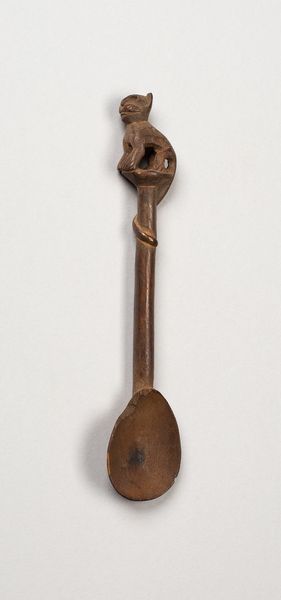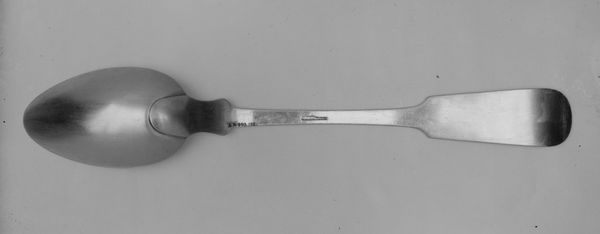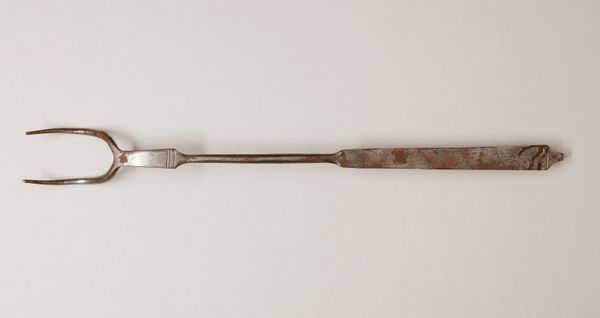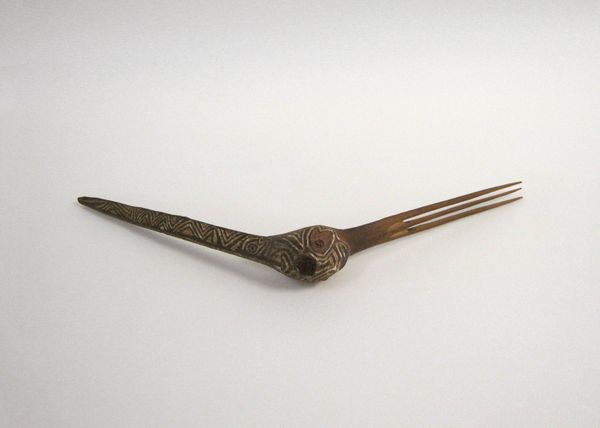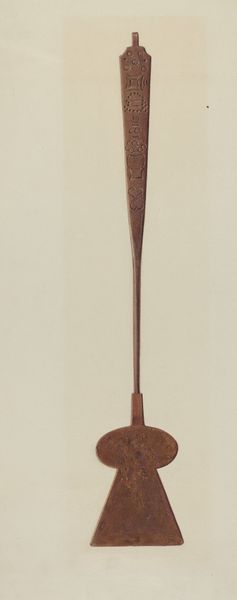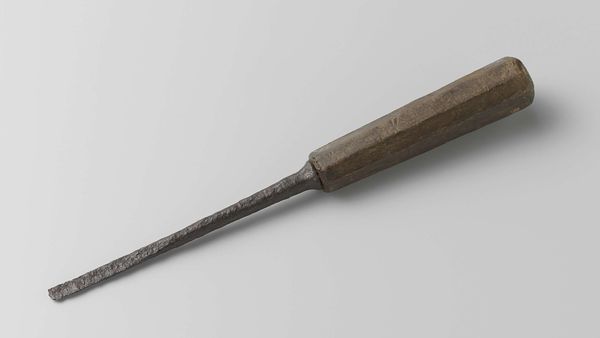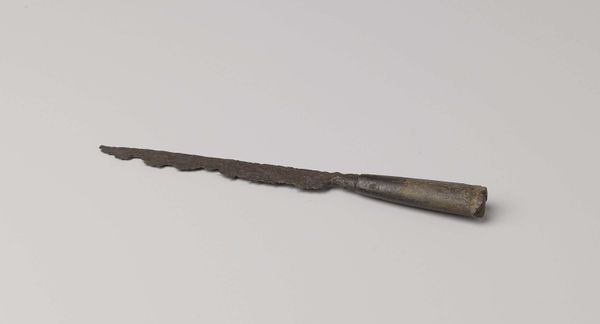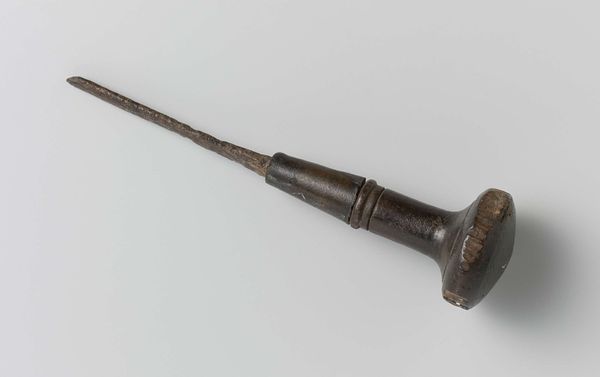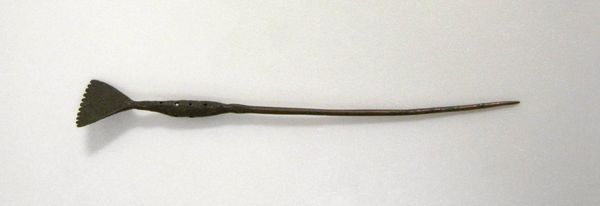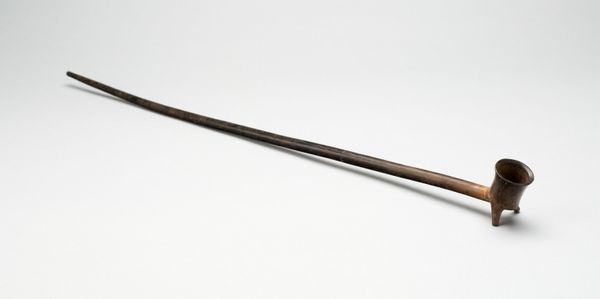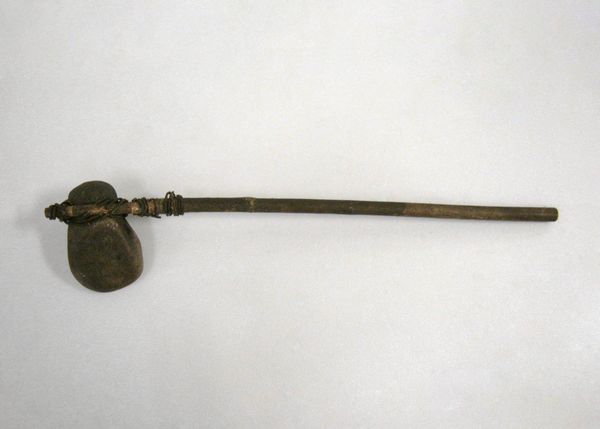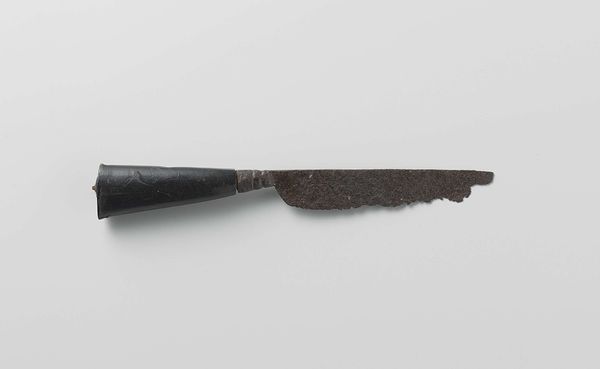
metal, sculpture
#
metal
#
sculpture
#
black and white theme
#
sculpture
#
black and white
#
united-states
Dimensions: 2 3/8 x 7 1/8 x 5 3/8 in. (6 x 18.1 x 13.7 cm)
Copyright: Public Domain
Editor: So, here we have a "Porringer" by Samuel Pennock, dating from around 1797 to 1800. It's made of metal and housed here at the Met. It looks very humble, doesn't it? What strikes you about such a simple, everyday object? Curator: Well, that humility speaks volumes, doesn’t it? I see in it a powerful connection to cultural memory. A porringer wasn’t merely a bowl; it was a symbol of sustenance, family, and community. Each mark, each imperfection on the metal holds the weight of countless meals and the lives sustained by them. What emotional residue, do you think, is captured within this metal form? Editor: I hadn't thought of it as an emotional object, more functional. You see it holding more cultural weight, perhaps related to family traditions? Curator: Precisely. Consider its circular form – a symbol of wholeness, of unending life. The single handle extending outward hints at offering, of shared nourishment. Notice how the metal reflects light. Can we view the scratches on the inner bowl like palimpsests that expose memory through usage? Editor: It’s like reading a personal history through the object. Curator: Indeed. The object transcends utility; it embodies continuity and connects us to our shared human experience, in a period of nation-building and fraught transatlantic exchange. What does this say to you, from a symbolic point of view? Editor: That really changes my perspective. I see how it embodies a sense of shared history, both practically and symbolically. Thank you! Curator: My pleasure. Looking closely at seemingly mundane objects allows one to connect with generations past through the silent language of symbols. It invites us to look more intently at ourselves.
Comments
No comments
Be the first to comment and join the conversation on the ultimate creative platform.
